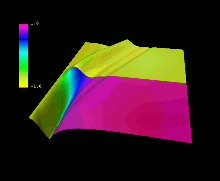
Claudio Rebbi
Robert Singleton
Department of Physics
Boston University
Recent theoretical models predict that nucleons can be created out of nothing in high energy scattering processes.
These processes can be quantitatively studied by simulating (spherically symmetric) solutions of the underlying non-linear field equations.
In what follows the phase of the complex field is color coded. A gauge transformation (phase rotation) is used to exhibit the linear behavior at late times.
The plots below show the complex field and its modulus profile, at several instants. The surface plot shows the evolution of the modulus profile.
Video Sequences
IV. Sphaleron decay in the 3+1 dimensional SU(2) Higgs model (spherical ansatz).
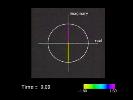
The evolution of the field in the complex plane.
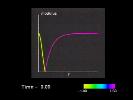
Evolution of the modulus of the field profile.
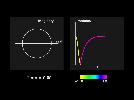
Evolution of the complex field and its modulus profile.
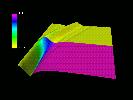
Evolution of the modulus displayed as a surface plot.
Still Images
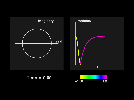
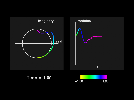
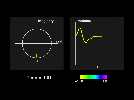
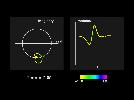
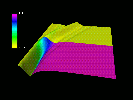
Evolution surface plot: JPG / GIF / RGB
Hardware: Computations performed on an SGI workstation, a NEXT workstation, and a Thinking Machines Corporation CM-5 at Boston University.
Software: CM Fortran code written by Claudio Rebbi and Robert Singleton. Visualization used NAG Iris Explorer and graphics software written by Erik Brisson in C and OpenGL.
Graphics programming and video production: Erik Brisson, Scientific Computing and Visualization Group, Boston University.
